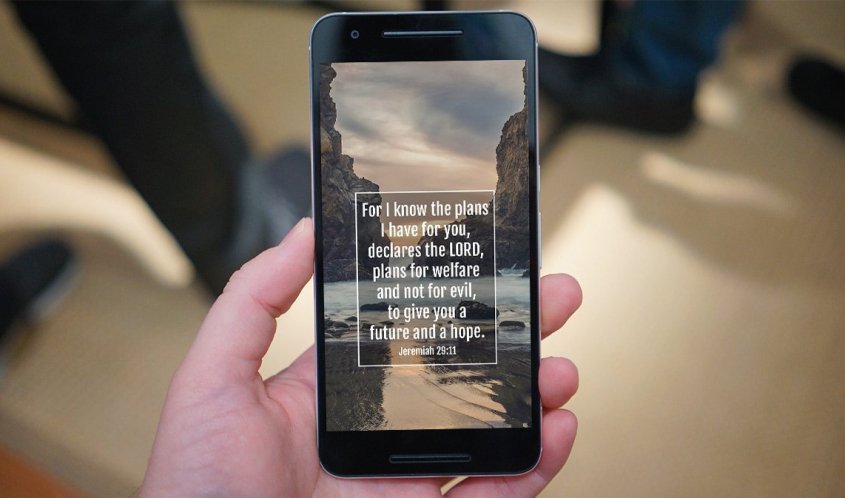Verse of the Day “Therapy” is Shrinking the Bible
It turns out the modern Bible is getting smaller with use.
That is, increasingly those who use the Bible, particularly in social media, are focusing on a shrinking numbers of verses.
Dr. Pete Phillips, director of the CODEC Research Center at Durham University, reports in Premier Christianity magazine on the growing phenomena of therapeutic or “feel good” Bible verses being passed on in tweets and posts. As he says, it is “good ‘clickbait’ in our age of social media to share these Bible verses which speak of the positive, healing influence of Christian faith.”
 It turns out that electronic Bible providers are employing “a data-centric model” which regularly regurgitates those verses which are already the most tweeted or shared by their user communities. The result is basically a repeating loop of verse of the day Bible balm. This means those who get their Bible online will receive plenty of “I can do all things” (Philippians 4:13) and “I know the plans I have for you” (Jeremiah 29:11), but not so much of the rest of the Bible.
It turns out that electronic Bible providers are employing “a data-centric model” which regularly regurgitates those verses which are already the most tweeted or shared by their user communities. The result is basically a repeating loop of verse of the day Bible balm. This means those who get their Bible online will receive plenty of “I can do all things” (Philippians 4:13) and “I know the plans I have for you” (Jeremiah 29:11), but not so much of the rest of the Bible.
Apparently no one is intentionally choosing a wide selection of verses to more adequately convey the wider range of biblical teaching. Dr. Phillips particularly laments the absence of verses on what he calls “propositional” Christianity—texts which “set out what God has done for us; how we are saved; the power of the cross.”
The prognosis is not so good, however. Phillips ends with the less-than-hopeful question: “Does this mean that we lose out on doctrinal or propositional input into our Bible reading online?” And if we do put more than therapeutic Bible verses out there, will they all merely land on “deaf ears, blind eyes and dead screens”?
The concern here is appropriate. Constantly engaging the Bible verses that make me feel good is perilously close to turning the Bible into a prophet that tells me only what I want to hear.
This is the kind of prophet the real prophets warned us about.
But is simply adding more verses—propositional ones—to the playlist really the solution?
Isn’t there a deeper problem here?
Constantly engaging the Bible verses that make me feel good is perilously close to turning the Bible into a prophet that tells me only what I want to hear.Click To TweetExposure to a wider variety of Bible verses might offer me more than therapy, but the entire approach is still based on providing would-be Bible readers little more than a morsel. The bigger issue is that we can’t rely on tweets, Facebook posts, or verse of the day deliveries to our inbox to fulfill the promise of Bible engagement.
The social media channel as a communication medium has built-in limitations. The Bible itself is so much more than a collection of verses, so much richer than a sourcebook of one-liners, be they therapeutic, propositional, or whatever. The Holy Scriptures are a gathering of complete literary works, meant to be read as a whole. These books come together to tell a story that can only be taken in, understood, and lived if it is fully encompassed, apprehended at length, and deeply embraced.
Sound bites can’t do this.
A constant diet of atomized fragments is a disservice to the Scriptures that God gave us. Let us rather respect and read the Bible holistically. Let us honor the word of God by giving it the gift of our time and full attention.
We don’t need a shrinking Bible delivered to us with a diminished set of expectations. May we rather welcome back a full-sized Bible—the stories, wisdom, instructions, and visions overflowing with all that God has for us and all he wants to teach us. Words to encourage and inspire us, yes, but also to instruct and correct and welcome us wholly into this long and winding narrative that in the end leads us exactly where we need to go.
Only the complete Bible can do this.
Only the books God gave us can do the work in our lives that he intended his word to accomplish.
So read big.








